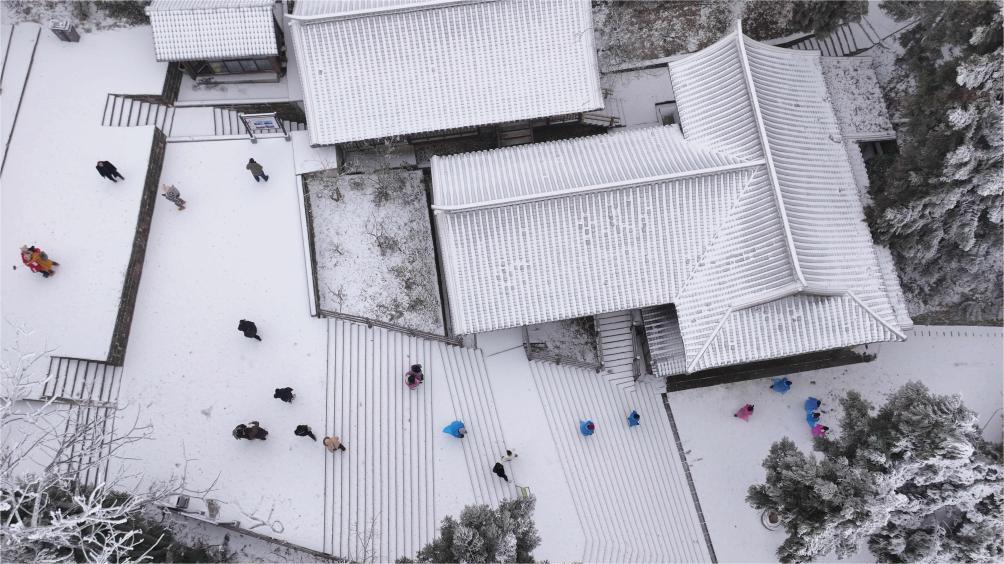Japan to start 4th ocean discharge of Fukushima nuclear-tainted wastewater despite backlash
TOKYO, Feb. 26 (Xinhua) -- Japan is set to start its fourth round of release of the nuclear-contaminated wastewater from the crippled Fukushima Daiichi Nuclear Power Plant into the Pacific Ocean on Wednesday, local media reported.
Despite raging concerns and opposition both at home and abroad, Tokyo Electric Power Company (TEPCO) announced that it would start discharging about 7,800 tons of the wastewater, in a similar amount to the previous three rounds, over about 17 days.
Amidst chilly winds in Tokyo, local residents took to the street to oppose the upcoming ocean release. They also voiced concerns over the recent leakage of contaminated water from pipes at the Fukushima plant, as well as potential safety hazards for the disaster-prone country in light of the Noto Peninsula Earthquake.
Domestic opposition and distrust were rekindled after the TEPCO admitted that on Feb. 7, about 5.5 tons of water containing radioactive materials were discovered to have leaked from the outlet of a device used to purify nuclear-contaminated water at the Fukushima plant, and the water may contain 22 billion becquerels of radioactive materials such as cesium and strontium.
According to the TEPCO, human error was deemed as the cause of the incident, as 10 out of the 16 valves of the device that should have been closed were open.
In October last year, five workers were directly exposed to liquid waste containing radioactive materials in the crippled plant.
In Indonesia, a group of plaintiffs filed a lawsuit against Japan at the Central Jakarta District Court last Thursday, demanding an end to the ocean release.
Marthin Hadiwinata, a member of the local environmental organization Ekomarin and one of the plaintiffs, said the release "will directly impact Indonesia's ecosystem," Japan's national news agency Kyodo reported.
According to Kyodo, the TEPCO, for the fourth round onwards, will skip the step of temporarily storing treated water in large tanks to confirm tritium concentration before release, while samples of the water will be collected during the discharge operation instead, and its concentration will be measured once daily.
Wednesday's release would mark the final discharge for the fiscal year 2023 ending in March, bringing the total amount for the fiscal period to approximately 31,200 tons of the water stored at the nuclear plant in the northeastern Japanese prefecture.
Hit by a 9.0-magnitude earthquake and an ensuing tsunami on March 11, 2011, the Fukushima nuclear plant suffered core meltdowns that released radiation, resulting in a level-7 nuclear accident, the highest on the International Nuclear and Radiological Event Scale.
The plant has been generating a massive amount of water tainted with radioactive substances from cooling down the nuclear fuel in the reactor buildings, which are now being stored in tanks at the nuclear plant.
In August 2023, Japan started to discharge the Fukushima wastewater into the Pacific Ocean, despite repeated objections by governments and communities, environmental groups, non-governmental organizations, and anti-nuclear movements in Japan and the Pacific region.
Photos
Related Stories
- China is ‘unlikely’ to lift import ban on Japanese seafood as dumping continues
- Okinawa residents file suit over U.S. base transfer work
- Why Japan slips into recession and loses crown as world's third-largest economy?
- People visit lantern festival celebrating Chinese New Year in Nagasaki, Japan
- Tokyo Tower lights up in red for Chinese Lunar New Year
- When will "man-made" disasters come to an end? The Shika Nuclear Power Plant Accident in Japan raises three questions
Copyright © 2024 People's Daily Online. All Rights Reserved.









